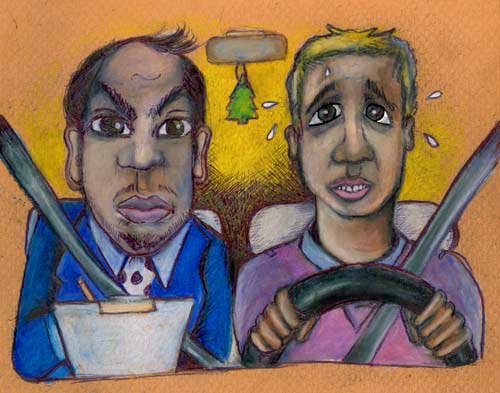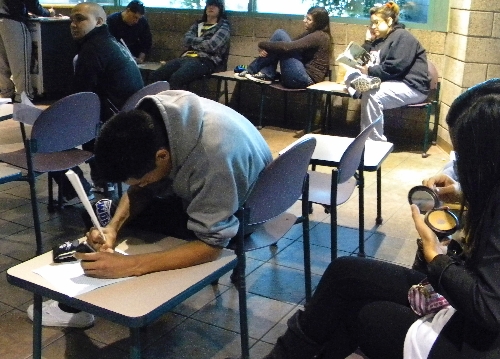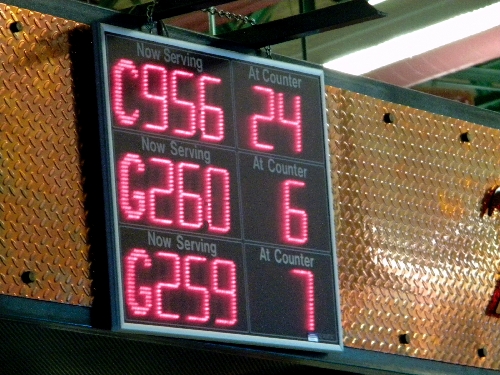Taking the Wheel
Upon walking into the DMV, the tension is palpable.
Pacing, fidgeting and wringing their hands, the teens about to embark on their road test wait to hear the instructor call their name, commencing what many consider to be the most distressing drive of a lifetime.
Age 16 often conjures up visions of car keys in one's head.
It's the legal age in Nevada at which a driver's license can be obtained. Before this privilege is granted, though, a dreaded driving test must be passed. With the fate of their license lying in the hands of a Department of Motor Vehicles instructor, the thought of taking the driving test can fill teens with a sense of interminable angst.
Kyle Hampton, a junior at Coronado High School, has had his license since early September, but he admits to having felt much anxiety prior to The Test.
"I was so nervous about failing," he says. "I think everybody is. It's just a nerve-wracking thing to do."
DMV regulation calls for a new driver to pass a written test prior to taking the road test.
The exam is based on proper driving etiquette, and can be taken six months after turning 15.
If an applicant passes, a learner's permit is issued so that prospective drivers can get behind the wheel with a licensed driver who has had his or her license for at least one year and is older than 21.
After six months of practice along with some form of a driver's education course and a log of driving hours, teens are authorized to take the road test, which puts them in the driver's seat alongside a DMV instructor who evaluates their abilities.
Megan Flaviano, a junior at Bishop Gorman High School, says she was worried about taking her driving test because of all the rumors she had heard.
"Some of my friends told me that the instructors usually fail you the first time you take it so that you can be more prepared the second time," she says. "I was really scared that I was going to get a mean instructor who would fail me immediately."
Flaviano proved her friends wrong and was thrilled when she passed the test on her first time around.
"You can't believe everything you hear about the test because everyone has a different experience," she says. "Listening to all the rumors will just make you more nervous."
According to DMV driving test examiner Debbie Sanders, Flaviano is right.
"We go out and do the test," Sanders says, "and then come back and tell you what you did wrong and what you did right."
Sanders knows that teens expect the test to be awful based on horror stories that they have heard, but this is normally not the case. She said the examiners are not there to fail you.
However, sometimes it's unavoidable.
Sanders notes that speeding in school zones and running red lights are "automatic fails" and are the most common reasons why students don't pass the test. A common misconception among test takers is that parallel parking should be a big concern.
"You shouldn't be nervous to parallel park," Sanders says. "There's plenty of room, and you need to make an attempt."
While getting the license may be a stress-inducer, Flaviano urges test takers not to worry.
"The best thing you can do is feel well-prepared," she advises. "If you practice enough, you'll be fine. Once you get it, you can enjoy all the freedoms a license has to offer."
R-Jeneration






























